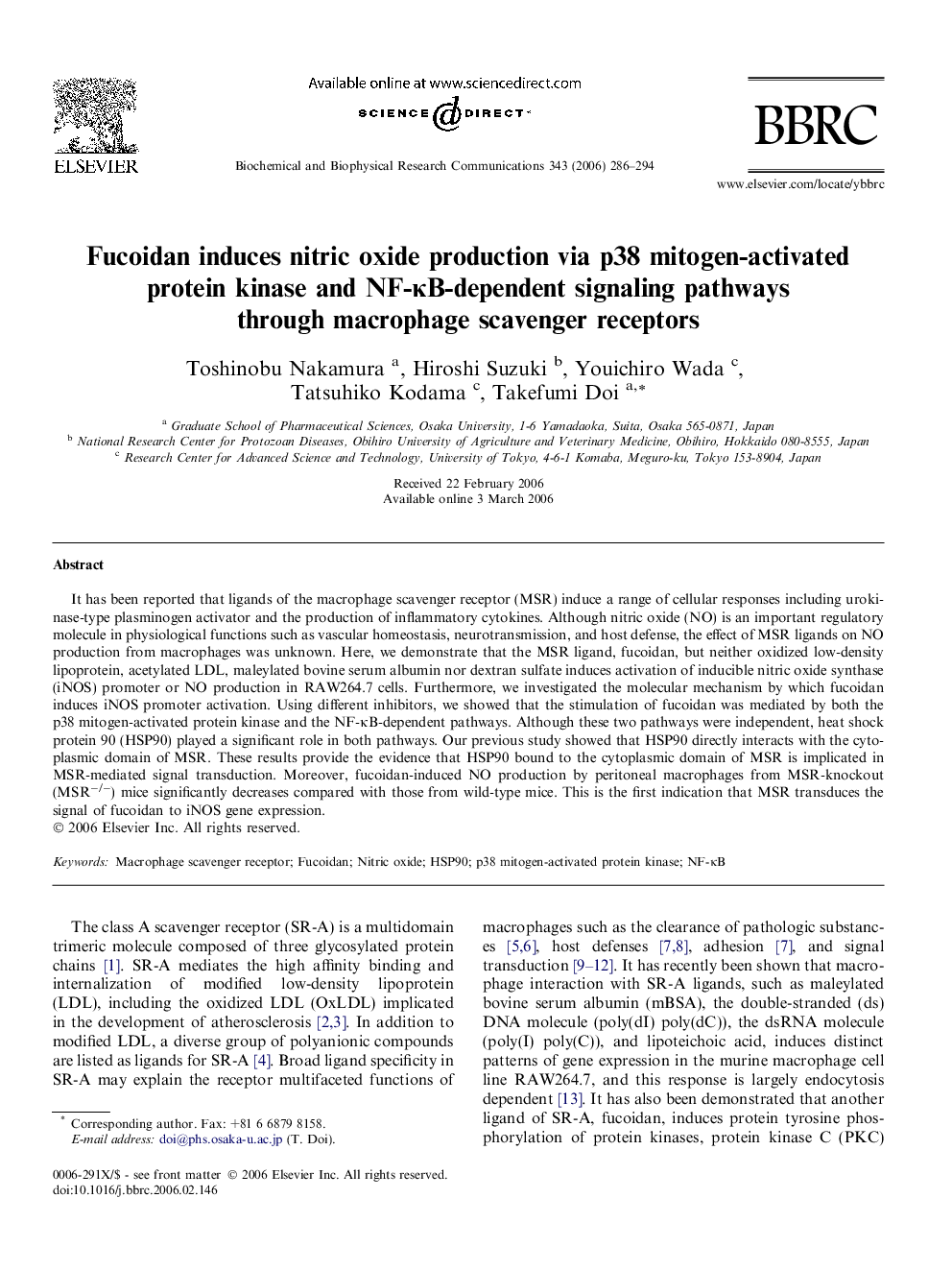| Article ID | Journal | Published Year | Pages | File Type |
|---|---|---|---|---|
| 1941037 | Biochemical and Biophysical Research Communications | 2006 | 9 Pages |
It has been reported that ligands of the macrophage scavenger receptor (MSR) induce a range of cellular responses including urokinase-type plasminogen activator and the production of inflammatory cytokines. Although nitric oxide (NO) is an important regulatory molecule in physiological functions such as vascular homeostasis, neurotransmission, and host defense, the effect of MSR ligands on NO production from macrophages was unknown. Here, we demonstrate that the MSR ligand, fucoidan, but neither oxidized low-density lipoprotein, acetylated LDL, maleylated bovine serum albumin nor dextran sulfate induces activation of inducible nitric oxide synthase (iNOS) promoter or NO production in RAW264.7 cells. Furthermore, we investigated the molecular mechanism by which fucoidan induces iNOS promoter activation. Using different inhibitors, we showed that the stimulation of fucoidan was mediated by both the p38 mitogen-activated protein kinase and the NF-κB-dependent pathways. Although these two pathways were independent, heat shock protein 90 (HSP90) played a significant role in both pathways. Our previous study showed that HSP90 directly interacts with the cytoplasmic domain of MSR. These results provide the evidence that HSP90 bound to the cytoplasmic domain of MSR is implicated in MSR-mediated signal transduction. Moreover, fucoidan-induced NO production by peritoneal macrophages from MSR-knockout (MSR−/−) mice significantly decreases compared with those from wild-type mice. This is the first indication that MSR transduces the signal of fucoidan to iNOS gene expression.
